[ad_1]
Known for its towering ambition — reflected in glitzy high rises and gilt-edged luxury — Dubai has been setting its AI wheels in motion way before the term ‘artificial intelligence’ entered everyday conversations.
In 2016, the government, in collaboration with IBM, launched an AI-based service allowing users from the business community to ask questions and get up-to-date answers on business licensing and registration processes. In October 2017, the UAE established the world’s first Artificial Intelligence Ministry, pushing its AI agenda from the governmental policies to the daily lives of Dubai’s residents and visitors.
“The country is investing billions in technological innovation and plans to become a world leader in AI development by the late 2020s,” says Omar bin Sultan Al Olama, Minister for Artificial Intelligence Digital Economy and Remote Work Applications, UAE.
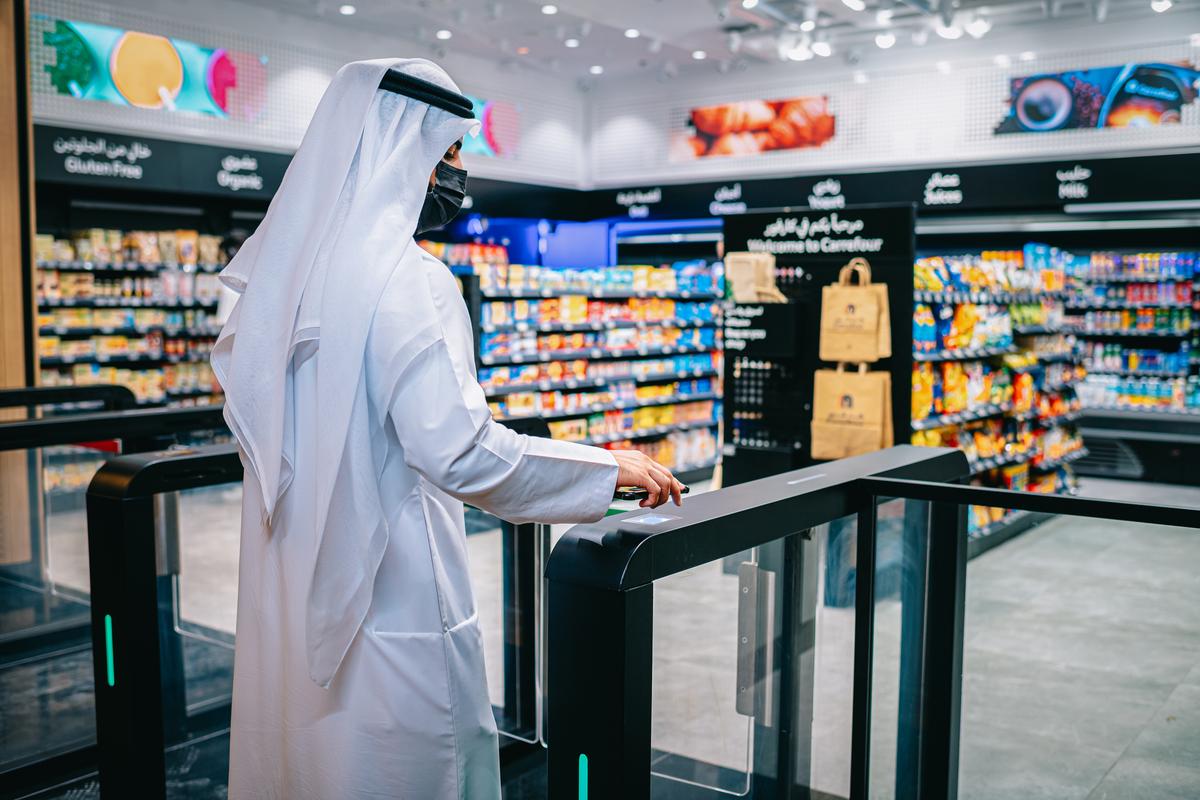
Majid Al Futtaim’s Carrefour City+
| Photo Credit:
Special Arrangement
Snapping up big data tech and collaborating with futuristic firms across the globe, the city of gold has laid out a data-fuelled playground of next-gen leisure and infotainment, from smart pedestrian crossing systems and drone deliveries to VR parks and an AI-powered digital city concierge (Dubai AI).
Thirty-three-year-old Omar finds AI very interesting on a global platform, while still in its fledgling state. “It’s very broad right now, so every country is going to look at specialising in their own fields. The key to our strategy is creating AI services that enhance the experience of residents and tourists in the UAE’s futuristic cities, led by Dubai,” he states.
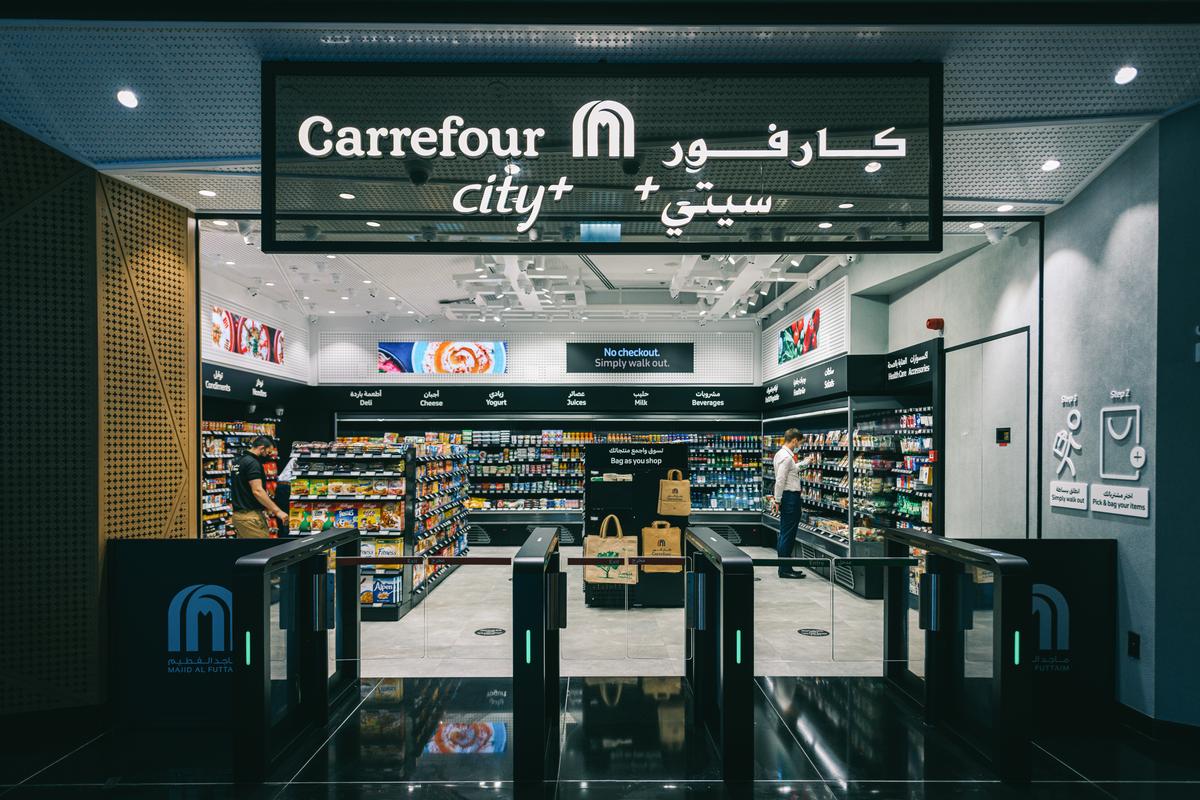
Majid Al Futtaim’s Carrefour City+
| Photo Credit:
Special Arrangement
Shop till the avatar drops
On your next shopping trip to Dubai, do not be alarmed when a tall, slim assistant silently glides past you without as much as a nod. UAE’s leading retail developer Majid Al Futtaim (MAF) has appointed a fleet of 12+ Tally Robots at its supermarkets to assist with stock management. Swing by their Carrefour City+ at Mall of the Emirates to shop at the region’s first AI-powered checkout-free store, which employs 97 in-store cameras to identify and track you through body structure — no facial recognition or biometric data invasion — while an app automatically updates your virtual baskets.
Taking online shopping a step ahead, MAF launched Dubai’s first virtual retail and entertainment destination last spring. Still in development stage, Mall of the Metaverse — currently hosting Carrefour, VOX Cinemas, THAT Concept Store, Ghawali Fragrances, and Samsung Store — ushers your virtual avatar into a retail frenzy, driven by behavioural science data.
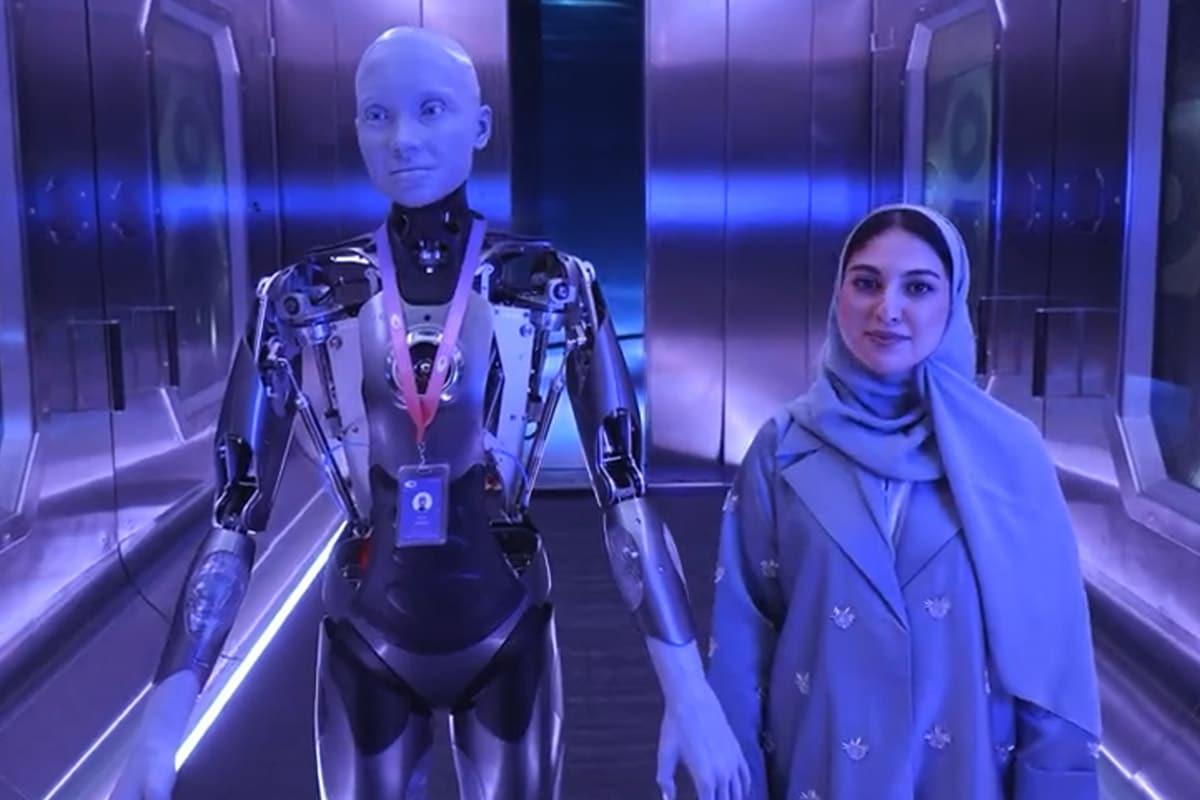
Ameca and Aya at Museum of Future
| Photo Credit:
Special Arrangement
Past-future connect
If the thought of counting your crypto on an NFTs buying spree at a virtual mall puts you off, perhaps you prefer to go old-school at museums and libraries. Except, those dusty bastions of knowledge are getting AI facelifts too. Perched on a hill in the city’s financial district, the resplendent doughnut-shaped Museum of Future is now on every Dubai holiday itinerary.
Aya, the museum’s luminous digital technologist (an avatar) guides you across seven floors of futuristic exhibits and installations which envision life in 2071. While children and adults alike can expect to be tickled by spacecraft, a simulation of the Amazon (forest, not company), the Future heroes ‘play area’, and a bald and steel lady is likely to evoke mixed reactions.
Stationed outside the ‘Tomorrow Today’ exhibit, Ameca, the humanoid robot mimics human expressions. Albeit creepily, she will, smile, and even compliment you on your gorgeous looks, besides answering questions on the museum.
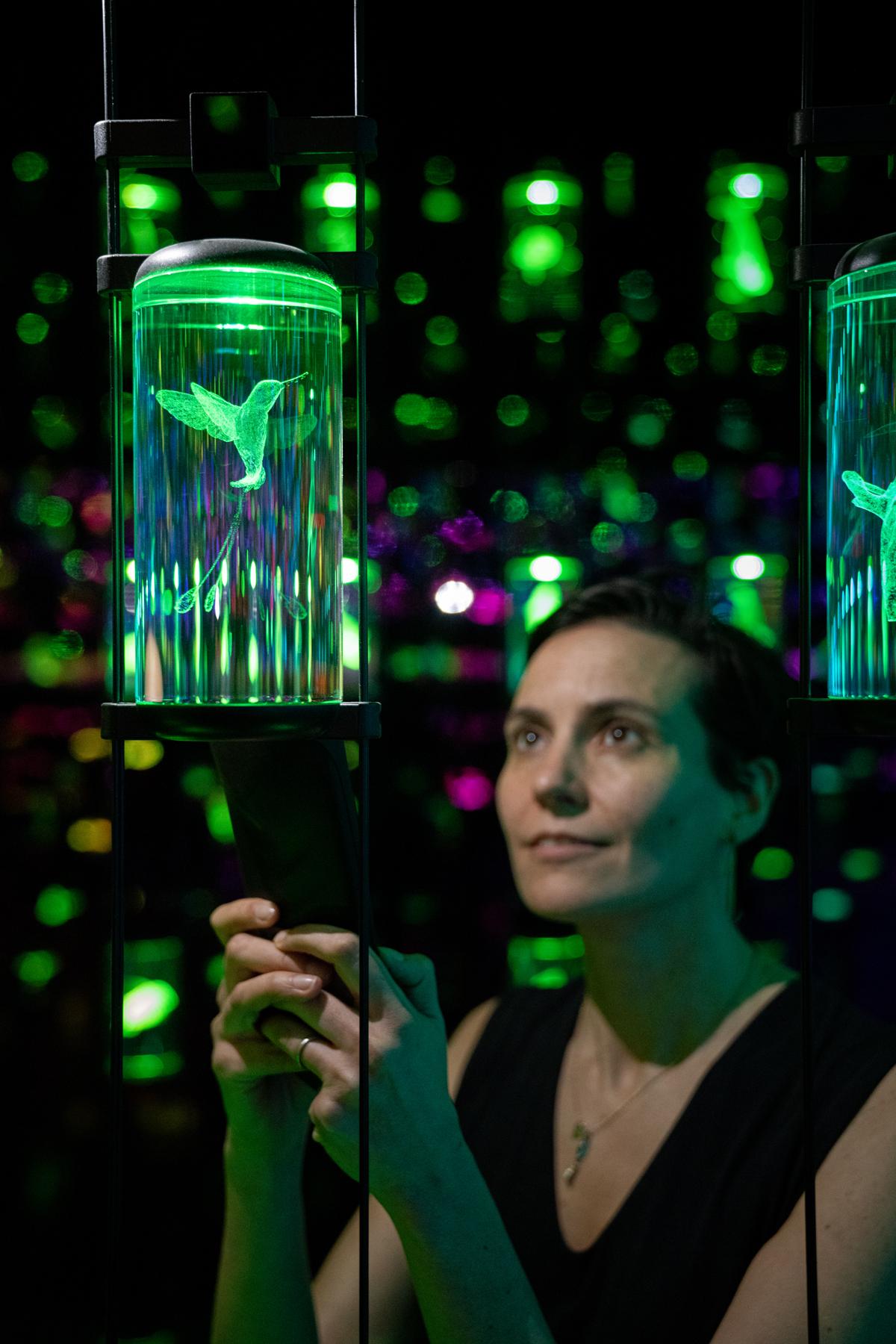
Vault of Life at Museum of Future
| Photo Credit:
Special Arrangement
Brendon McGetrick, creative director of the museum wanted to move beyond the tired cliché of immersive experiences to building “expansive experiences” for audiences to feel differently about the world. A case in point is the shimmering Vault of Life exhibit on the fourth floor, a gargantuan catalogue of our planet’s natural diversity.
Conceived by London and Ahmedabad-based Superflux Studio, the 4000+ square feet space with 2,400 suspended crystal specimen jars (created with bespoke software) is guaranteed to dazzle.
“We’re trying to explore this kind of relational intelligence in our artistic projects, pushing our own boundaries of human cognition and capacities,” says Anab Jain, co-founder, and director of Superflux. Anab and her partner Jon Arden’s More than Human manifesto attempts to foreground the deep ecological relationality of our planetary species.
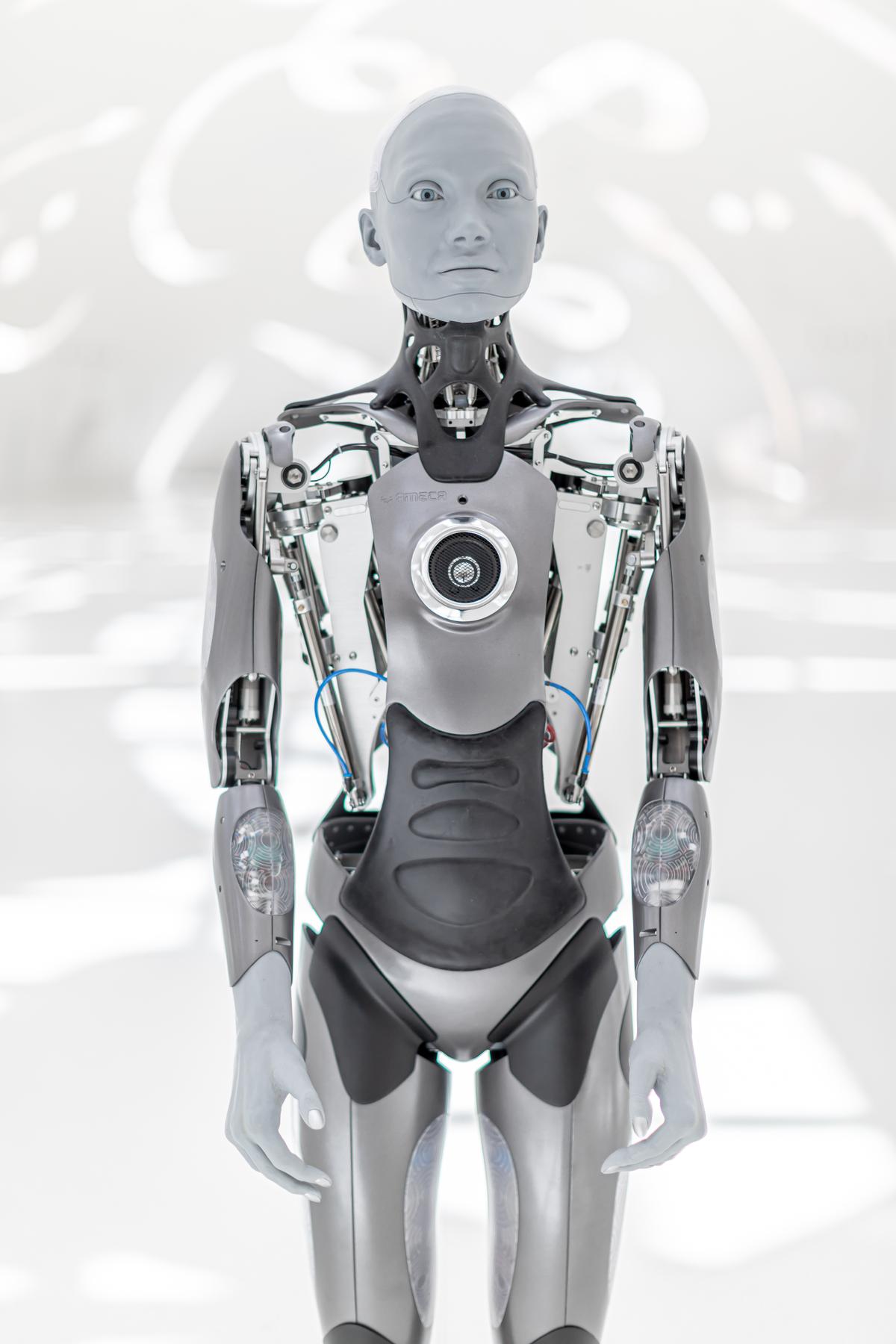
Created by Cornwall-based Engineered Arts, Ameca, touted to be the world’s most advanced humanoid robot is designed as a platform for AI development
| Photo Credit:
Special Arrangement
While Anab looks at stretching the possibilities of AI beyond “human dopplegangers”, robots continue to multiply in Dubai. Unlike America’s unsettling mimicry of human expressions, Pepper is a safe bet, especially for kids. The robot at Mohammed bin Rashid Library (MBRL) in the Al Jaddaf locality at Dubai Creek headlines impressive AI-powered facilities that include a virtual book tour and smart shelves. MBRL’s automated storage system sends commands to robots to search for books, request and retrieve them, and later deliver them to customers via a monorail system.
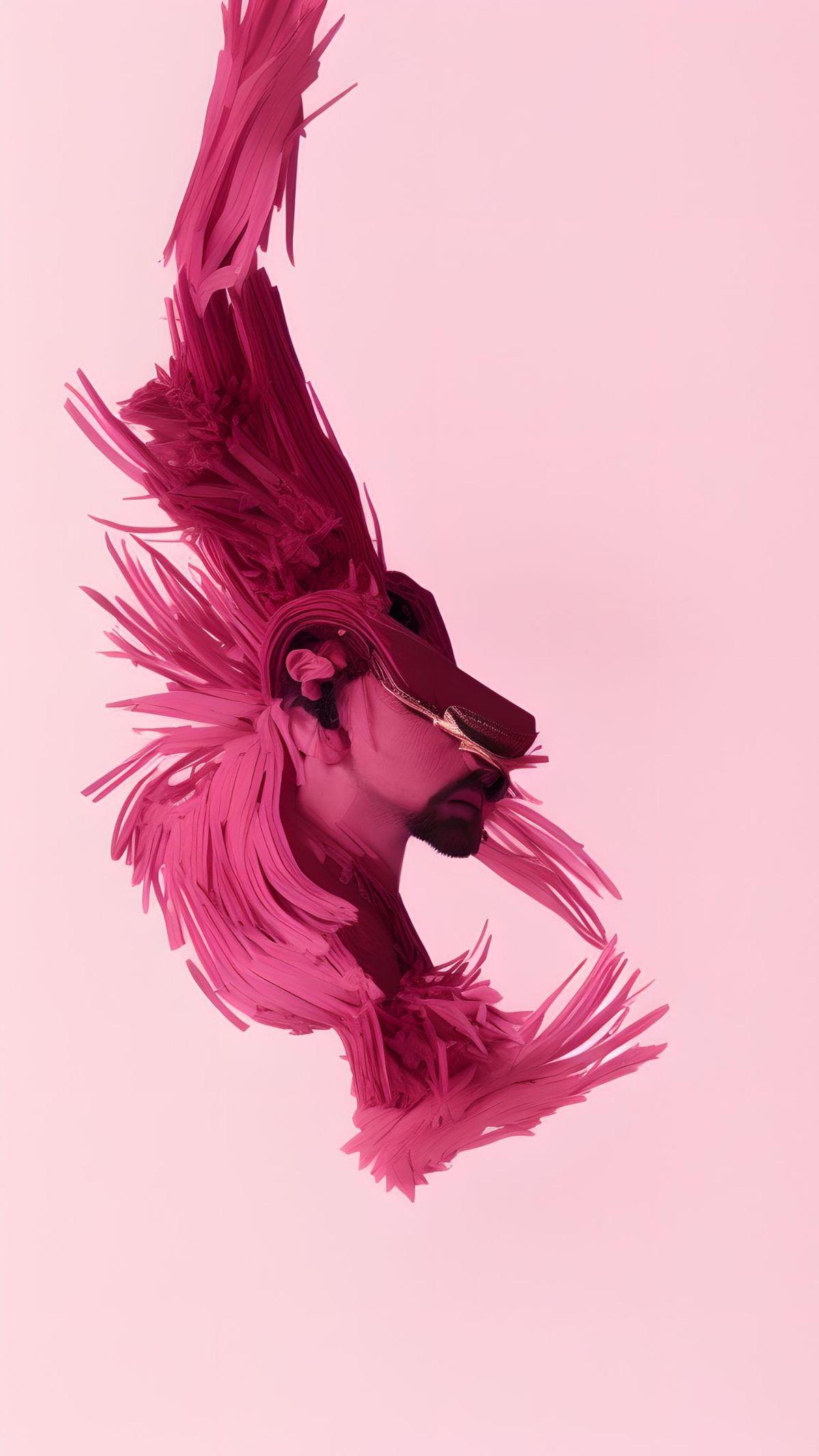
Brendan Dawes’ Persian Dreams
| Photo Credit:
Special Arrangement
A date with art
Dubai’s historical Al Fahidi district (formerly known as Bastakiya) is home to a vibrant art scene, including XVA Art Hotel. But if you are looking to be amazed, check into the vibrant Indigo Hotel, just minutes away from Dubai Design District. The contemporary boutique hotel showcases eclectic art, from Mashrabiya décor elements and graffiti walls to oriental tapestry and sculptures.
The most curious of them all is a minimalist installation behind the reception desk. Titled Wind of Dubai, it is the UAE debut of Turkish-American new media artist Refik Anadol. The installation comprises a year’s worth of data on Dubai’s wind speed, direction, gust patterns, and temperature captured by an algorithm and embedded into the canvas.
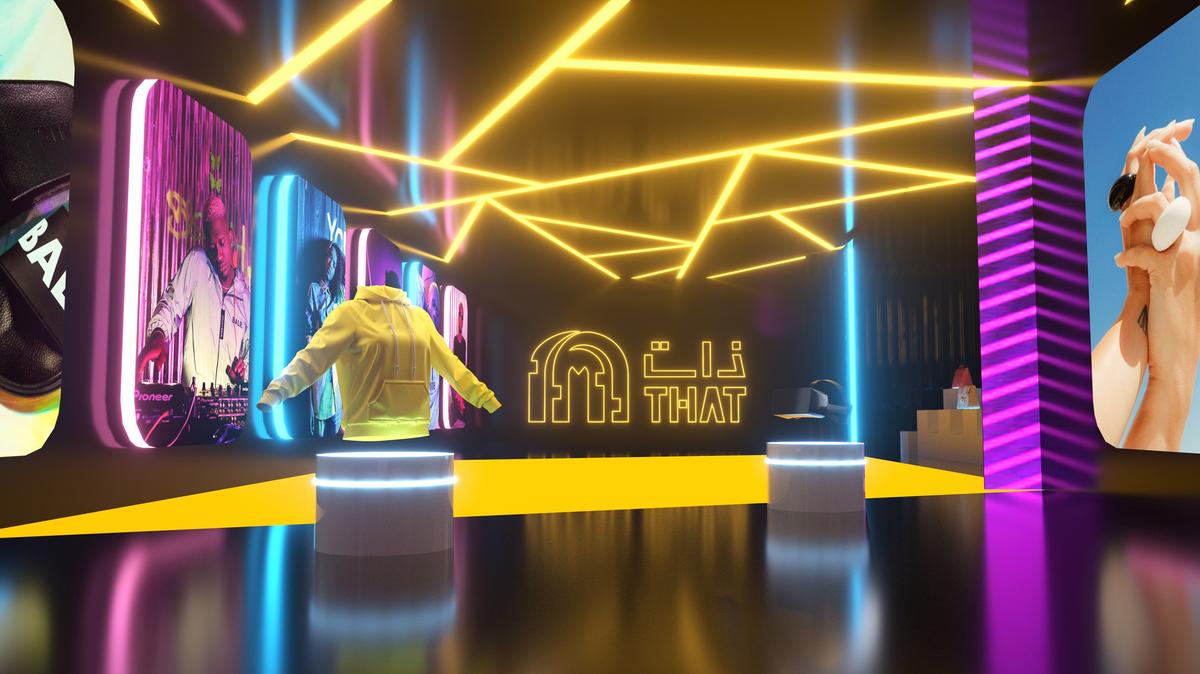
Majid Al Futtaim’s Mall of the Metaverse
| Photo Credit:
Special Arrangement
Benedetta Ghione, executive director of Art Dubai calls Anadol “a pioneering superstar in the aesthetics of data and machine intelligence”. With a dedicated digital platform since last year, Art Dubai encourages artists who utilise new technological tools. Amongst cutting-edge local art galleries like Galloire at City Walk Mall, generative art is all the rage.
“Unlike other cities, the market for AI-powered generative art is growing faster in Dubai, as the city truly is a global hub for crypto and digital entrepreneurs, artists, and enthusiasts. With the support of the government, there is an increasingly sophisticated understanding about how this sphere is developing,” Benedetta says.
Her optimism trickles down from the top tier. The UAE government is aiming at an AI immersion for every visitor to the City of Gold. Concludes Omar, “We want every single resident and tourist [to] feel like they are in the city of the future.”
[ad_2]
Source link





